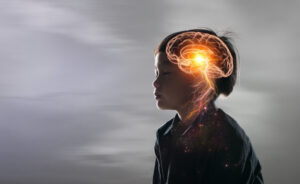Are you struggling as an adult and just can’t pinpoint what the cause is?
It may be partially rooted in your childhood. While your parents and caregivers may have tried their best, they may not have realized that there can be life-long effects of childhood stress.
When I asked psychologist Dr. Jamie L. Hanson to detail the top stressor(s) in childhood that can result in negative outcomes in adulthood, he said,
- “Clearly, different forms of child maltreatment (e.g., physical abuse, emotional neglect) can lead to poor mental and physical health later in life.”
- “Intense household dysfunction (e.g., having a parent with a substance abuse problem or mental illness) could impact behavior for years.”
- “Poverty/financial stress impact individuals. The effects of economic marginalization are not typically as strong, but still commonly seen for a long time.”
This is not an inclusive list, because as he expanded, “There are a number of life events and experiences that may lead to negative outcomes in adulthood.”
What are some of the negative outcomes that occur as a result?
“After high levels of stress, there are changes in the structure of multiple brain regions (how big or small the area is), and also how responsive it is,” Hanson explained.
Stress changes brain circuitry.

Research has indicated that “changes in brain regions involved with the processing of emotional and social information, as well as some areas involved with learning and memory” are impacted by these childhood experiences.
Each experience and person will be individualized; it is not a clear cut across the board result. As Hanson underscored, “It depends on the exact experiences.”
He expanded, “After different forms of child maltreatment, brain areas involved with processing threatening information and helping us be vigilant (to threat) increase in their size and levels of activity in response to something negative.”
I was curious if it took a certain number of stressful events to make a circuitry change or if it can be rather immediate after say, one stressful event.
Hanson said, “No, it isn’t about a certain number of events. The effects really vary based on the individual, what supports they might have, how they perceive the stressful experiences, etc.”
Furthermore, “If a stressor is chronic and frequent, there are large effects on the brain and on behavior. Also, with higher levels of stress, there are bigger impacts. However, one really difficult thing could still cause someone to have behavior changes.”
A lot of research has come out on the impact of childhood stress’ impact on adulthood. The more we know the better equipped we can be moving forward.
Dr. Jamie L. Hanson is an expert in psychology. He has received multiple awards and honors for his work. In 2017 the American Psychology Association labeled him a “Rising Star.” His research focuses on how children and adolescents learn about their environment, how brain circuitry involved with learning may be impacted by early life stress, and how these brain changes may confer risks for negative outcomes.
Watch for more from Dr. Jamie Hanson.
This website does not provide medical advice. No material on this site is intended to be a substitute for professional medical advice, diagnosis or treatment. It is for informational purposes only. Always seek the advice of a medical professional or other qualified health care provider on any health matter or question.
